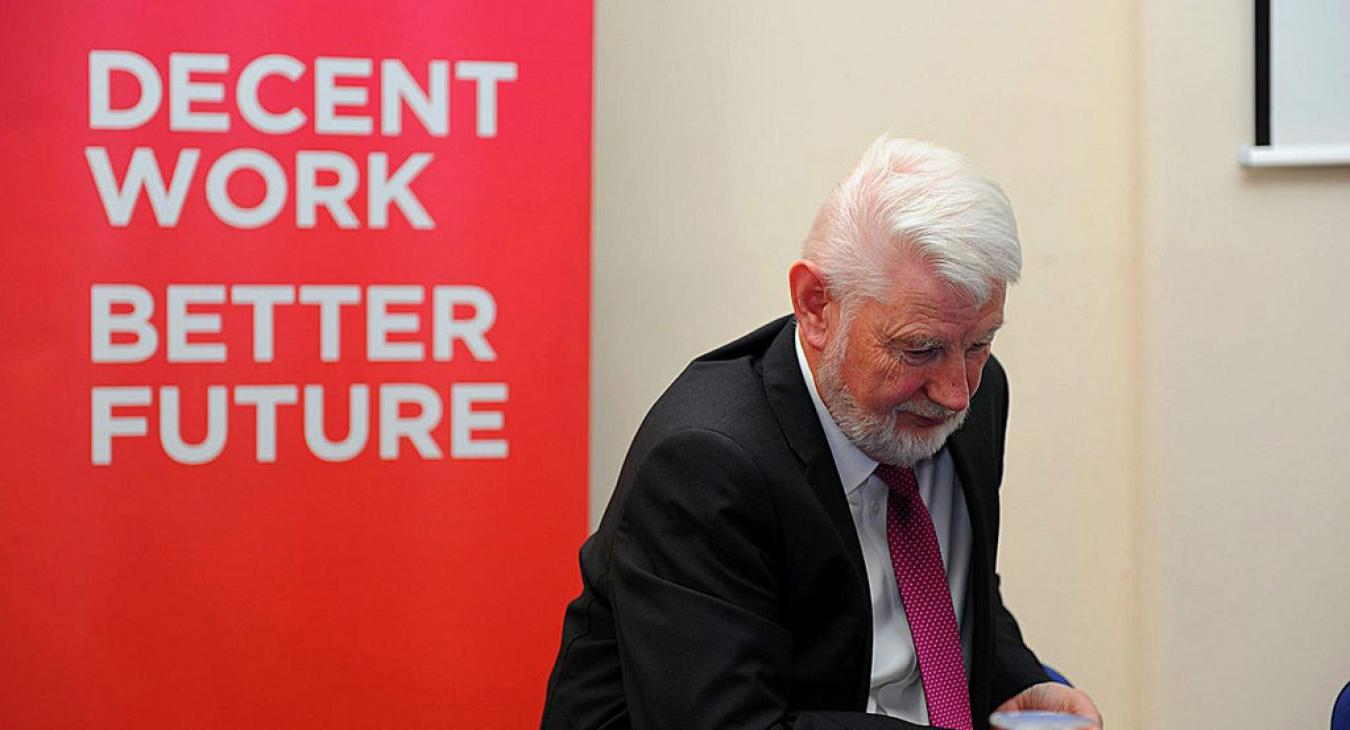
David Begg, Congress General Secretary
The Yale Professor, Robert Shiller, used his 2013 Nobel Prize in Economics acceptance speech to state that: "The most important problem that we are facing now today, I think, is rising inequality in the United States and elsewhere in the world."
The truth of this was captured in one statistic from an Oxfam report in January 2015, which revealed that the 85 richest people in the world have as much wealth as the 3.5 billion poorest.
Likewise, finance ministers attending the recent G20 meeting in Istanbul warned for the first time that the widening gap between rich and poor, following the 2008 financial crisis, may threaten economic and political stability.
This echoes the conclusions of the French economist Thomas Piketty who sparked a new intellectual ferment over inequality that is beginning to manifest itself in the political arena. Last year in Dublin a social policy think tank called TASC hosted a lecture by Piketty and 650 people attended, an indication of the growing public concern with inequality.
While acknowledging the effect on inequality of financialisation and technology the central thesis of Piketty's book is precisely that an apparently small gap between the return on capital and the rate of growth can, in the long run, have powerful and destabilising effects on the structure and dynamics of social inequality.
In other words, as long as the return on capital outpaces economic growth there will be a concentration of wealth at the top at the expense of the rest of society.
As we know, Europe has entered a phase of 'secular stagnation' caused by a combination of inadequate consumer demand and an ageing population. It is not likely that growth will exceed 1 to 1.5 percent for the foreseeable future.
That these trends in inequality pose huge challenges for mainstream politics in Europe is evident in the emergence of populist political movements of left or right in nearly every country.
Mainstream political parties have, so far at any rate, been unequal to the challenge posed by the fundamental conflict between the competing demands of markets and citizens.
Markets demand opposite kinds of incentives for different cohorts of the population:
- Higher profits and bonuses for the rich and
- Lower wages, precarious work and minimal social security benefits for the poor.
And it is certainly the case that markets have dictated policy since the onset of the 2008 financial crisis. As former Commissioner, Laszlo Ander, put it: "Internal devaluation has resulted in high unemployment, falling household income and rising poverty – literally misery for tens of millions of people".
Earlier this week the think tank TASC produced a forensic analysis of inequality in Ireland.
Mouth-watering levels of pay for a minority are reflected in a grim reality at the bottom. Ireland's median gross income for all those at work is currently €28,500 a year – half of all wage earners take home less, while two-thirds, earn less than €35,000 (close to the average wage).
This pattern for Ireland is unlikely to be unique in Europe.
However, where Ireland may be sui generis is in its low overall level of taxation at 30 percent of GDP. This inhibits our capacity to provide the kind of public services – like childcare for example – which could provide a threshold of decent living for all citizens.
So, what is to be done about inequality?
First, we need a level of social investment across Europe that will equip welfare states to respond adequately to modern kinds of social risk. This requires an adequate tax base but debt servicing is now a huge drag on tax revenue. Part of the response must be Piketty's proposal for a tax on capital.
However, a perhaps more important response to redistribution and chronic low demand lies with collective bargaining. Trade unions are the only market actors capable of acting within the market system in pursuit of social objectives.
Solidaristic wage bargaining can play a vital role in combatting inequality and promoting growth. Again this is a truth recognised by the ILO in an extensive study of the potential for wage-led growth published in January, 2014.
Since the 1980s neoliberal counter revolution there has been a sustained attack on trade unions. We are now reaping the fruits of that ideology in unsustainable levels of inequality.
The G20 is right; it will threaten economic and political stability.
Still, we should keep in mind that the world is not homogenous. There are varieties of capitalism and small open economies like the Nordic countries have been able to achieve best outcomes in equality and social cohesion, while remaining amongst the most competitive and economically productive in the world.
From a Eurozone perspective the root of the problem of growing inequality is that the European political establishment seems to be bent on transforming the monetary union into a huge German-style export-led economic machine characterised by stagnant wages, low demand and massive capital outflows. This is exemplified by the so-called Transatlantic Trade & Investment Partnership (TTIP).
This export-led growth model is linked to flexibilisation of labour markets and wage deflation as key elements of 'structural reform'.
My hope is that Europe will eventually abandon its disastrous austerity agenda and take on the task of reducing economic inequality as one of its core objectives.
This originally featured as a contribution to a seminar on inequality organised by EurActiv and the ETUC, to mark World Day of Social Justice on February 20. See more on the Storify report.
